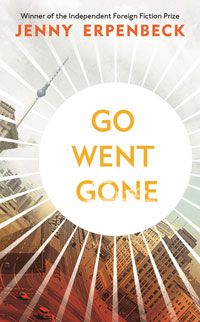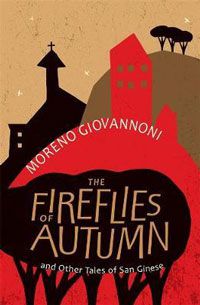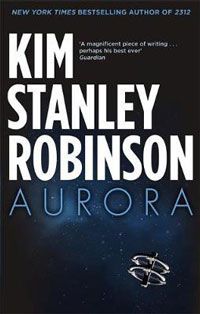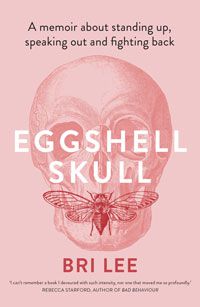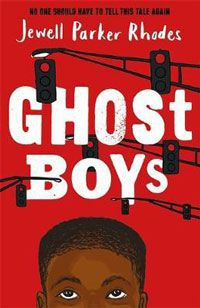Each week we bring you a sample of the books we’re reading, the films and TV shows we’re watching, and the music we’re listening to.
Kelsey Oldham is reading Go, Went, Gone by Jenny Erpenbeck (translated by Susan Bernofsky)
I’m currently reading Go, Went, Gone by Jenny Erpenbeck and I can’t put it down. Translated from the German by Susan Bernofsky, it follows Richard, a newly-retired professor, as he befriends a group of African refugees in Berlin and finally starts to find meaning in his life. Devoid of schmaltz and sentimentality, Go, Went, Gone is a masterful consideration of the impact of history and societal change on privilege. It’s been longlisted for the Man Booker International prize, so read it before it wins.
Ellen Cregan is reading The Fireflies of Autumn by Moreno Giovannoni (available July)
I was lucky enough to get my hands on an advance reading copy of Moreno Giovannoni’s first work of fiction. I am really loving this book – it has a wonderful fable-like quality that will sweep you away as you read. It also has a sense of inter-generational drama that is reminiscent of Elena Ferrante’s Neapolitan novels. The author has compiled a series of stories from San Ginese, a single village in Tuscany, and each section of the book jumps back and forth through the years, gradually weaving an image of the townspeople. You’ll find tales of war, love, revenge, fortune and poverty. I can’t wait to start recommending this book to everyone I know.
Robbie Egan is reading Aurora by Kim Stanley Robinson
I’ve been reading Aurora, which deals with a number of author Kim Stanley Robinson’s obsessions regarding space travel, artificial intelligence, and the environment. The book is largely narrated by a Starship’s A.I., which is a neat device that allows exploration of what consciousness is. Ship as the A.I. is known, develops its vocabulary and self-awareness over the centuries of travel, all the while caring for the thousands of people, animals and crops that comprise the deep-space colonisation project. At first stilted and self-conscious, Ship’s narrative builds brilliantly to become a deeply affecting portrayal of our species’ strengths and failings.
Despite the science and computing approach, the book builds to a richly rewarding conclusion which exposes us for what we are. Deeply flawed, violent and self-destructive, but with enormous capacity to adapt and grow, and ultimately to care and engage in emotions Ship comes to understand as ‘love.’ I stayed up way past my bed-time reading this one, and shed a tear towards the end as the fate of Ship and her biological cargo unfolded. A wonderful read.
Nina Kenwood is making her way through a stack of exciting Australian debuts
I recently attended the Leading Edge conference in Hobart, which is an annual get together for independent booksellers from all over the country. I was lucky enough to pick up a bunch of advance copies of books I can’t wait to read. My pile of goodies includes four exciting debut books by Australian authors: The Nowhere Child by Christian White (out in June); Boy Swallows Universe by Trent Dalton (out in July); Waiting for Elijah by Kate Wild (out in June); and Eggshell Skull by Bri Lee (out in June).
The Nowhere Child is a literary thriller that won last year’s Victorian Premier’s Unpublished Manuscript Award. I’m three chapters in, and loving it so far. Boy Swallows Universe is a first novel by a Brisbane journalist that sounds extraordinary – my colleague Chris has read it already and calls it tremendous and impossible not to love. Waiting for Elijah is Kate Wild’s investigation into a young man’s death at the hands of police in NSW – the book is the result of many years following the case, and I think it’s going to be a really important work. Finally, Eggshell Skull is a memoir of Bri Lee’s time as a judge’s associate, working mostly on cases of sexual assault, and her own reckoning with abuse in her past. I’ve read several chapters of this one, and it makes for unrelenting and powerful reading.
Leanne Hall is reading Ghost Boys by Jewell Parker Rhodes (available May)
I’m still thinking about this book several days after I finished it. Ghost Boys is the story of Jerome, a 12-year-old boy who is shot and killed by a police officer, after he plays in a vacant lot with a plastic toy gun. The narrative is split into before and after the shooting; the after sections are narrated by Jerome’s ghost, as he lingers around his family and his old life.
In the Alive chapters, Jerome’s life is characterised by his loving and cautious family, schoolyard bullying and a promising friendship with new kid Carlos. As a ghost, Jerome meets up with the ghosts of other slain boys, most significantly Emmett Till, and forms a difficult but healing friendship with Sarah, the daughter of the police officer that shot him. Jerome watches on as his family endures his funeral and a preliminary hearing that decides whether Sarah’s father will be prosecuted. It’s through his kinship with the other ghost boys, and their collective role in inspiring new young activists like Sarah, that Jerome finds his sense of purpose and meaning.
Ghost Boys is intended for a middle grade audience, and Jerome’s pre-teen voice comes through loud and true in his short, sharp sentences and his heartbreaking emotional turmoil. I’d recommend this for resilient readers aged 10 and up, and my feeling is that it would be best when read and discussed together with an adult. There’s a lot to talk about after reading this book: racial prejudice, unconscious bias, civil rights and the Black Lives Matter movement. Parker Rhodes talks about the importance of ‘bearing witness’ in the afterword to this book, and this is achieved in Ghost Boys without compromise, but with a heavy dose of hope and empathy.


